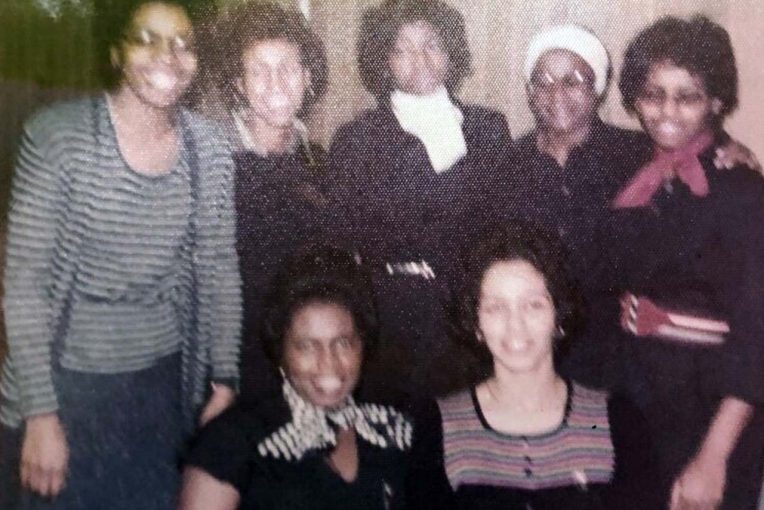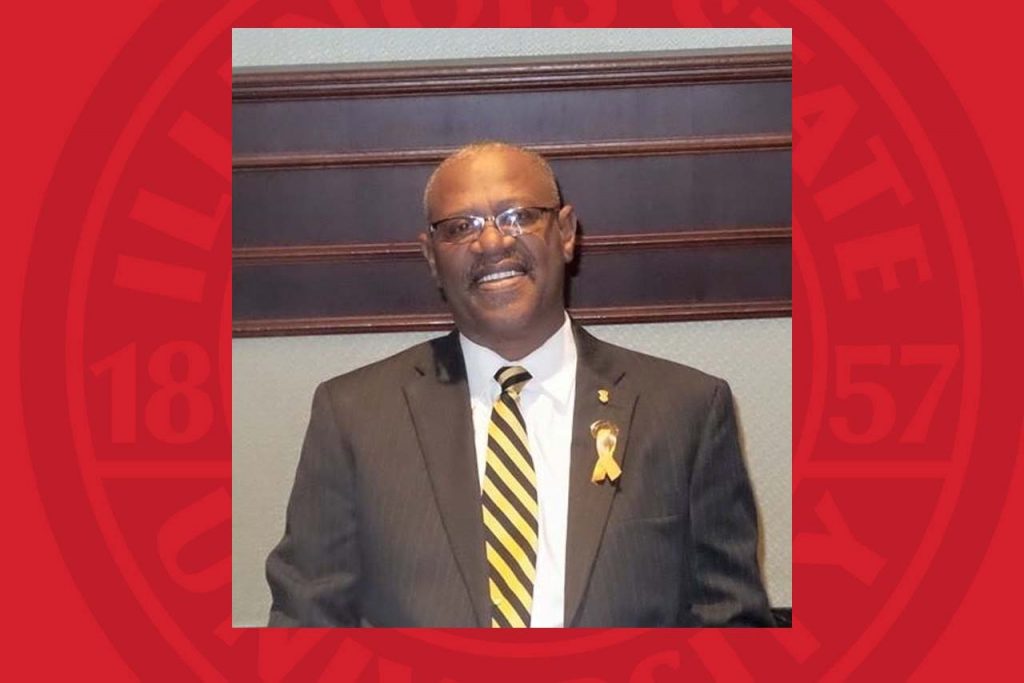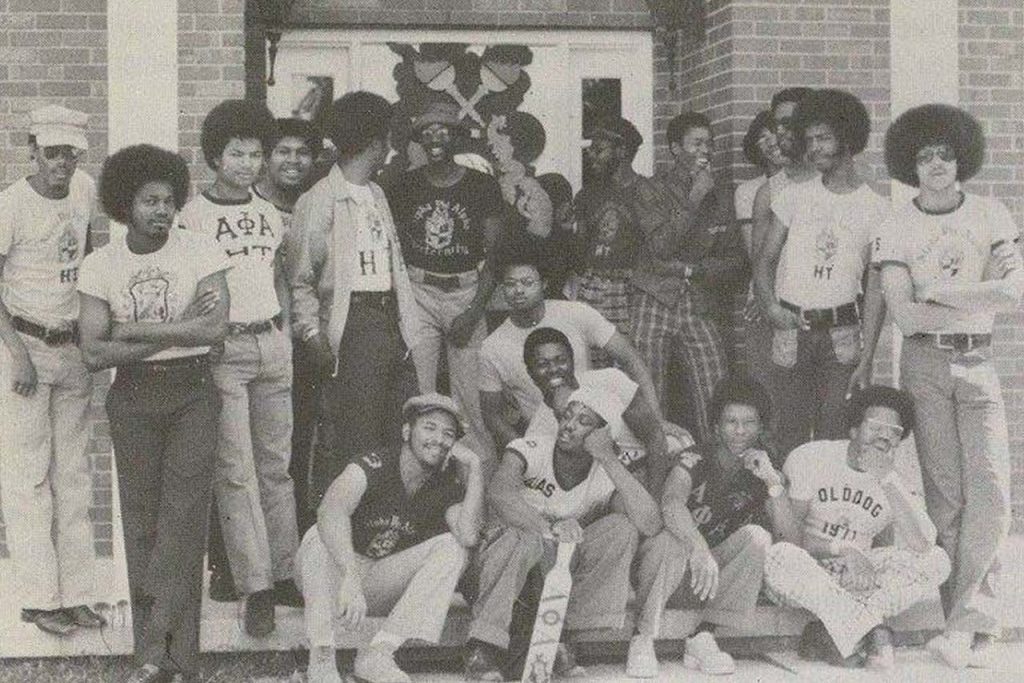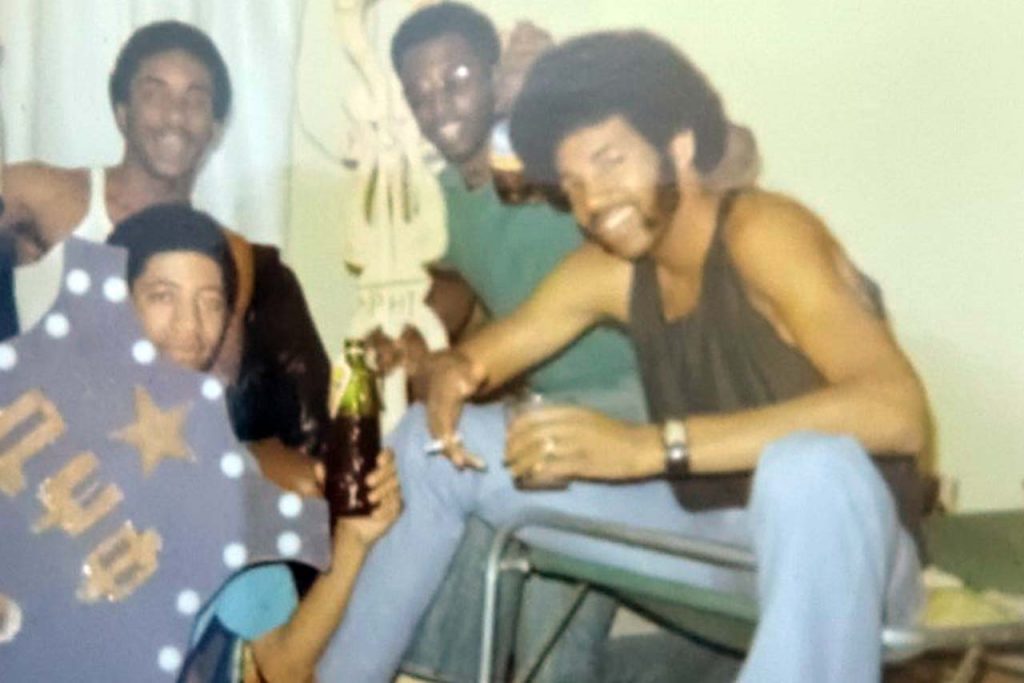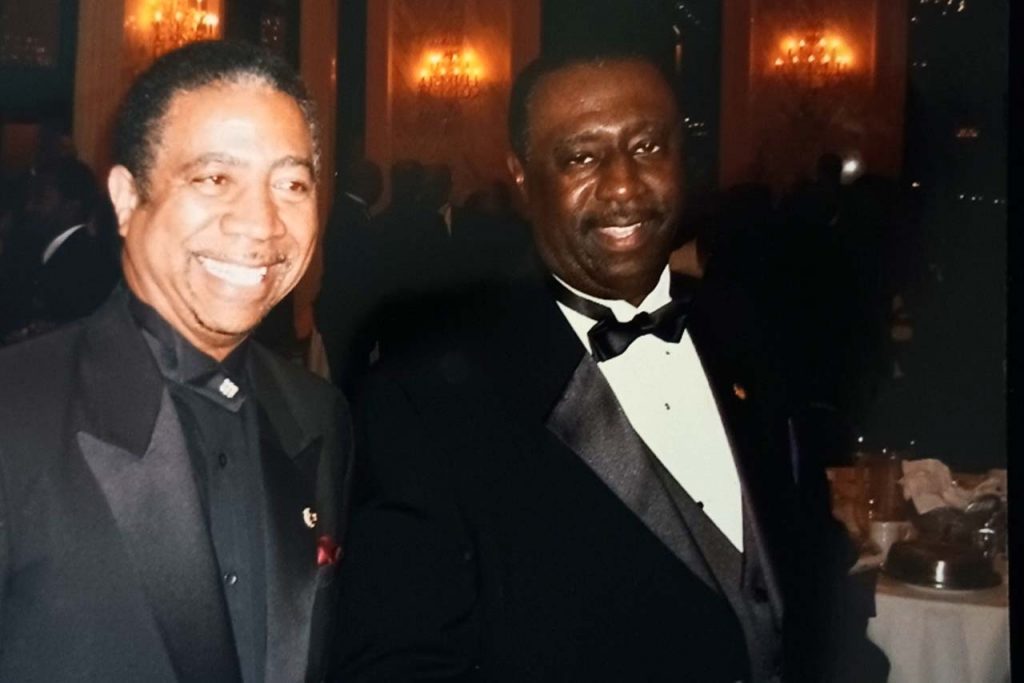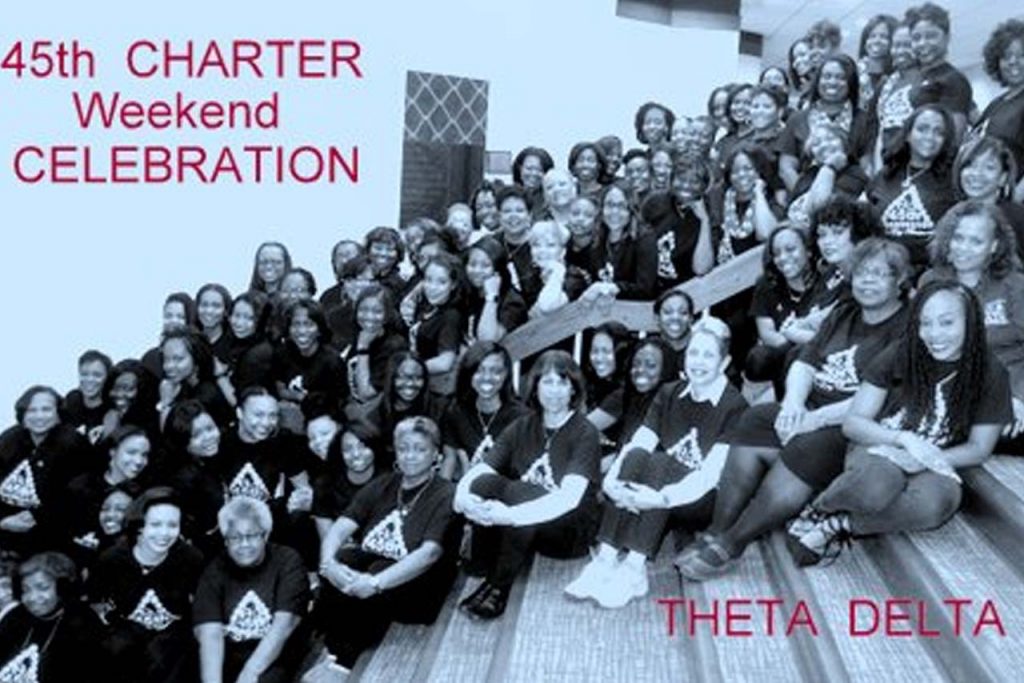From Alpha to Omega, Black Greek-letter organizations were (mostly) founded on historically black campuses at the turn of the century when African Americans had to forge their own way in a racially oppressive world. This year, as three organizations—Alpha Phi Alpha Fraternity, Omega Psi Phi Fraternity, and Delta Sigma Theta Sorority—celebrate 50 years of scholarship, service, and academic excellence at Illinois State University, chapter charter members reflect on their accomplishments and persistent role at the university and beyond.
Eta Tau, Alpha Phi Alpha Fraternity Inc.
You can hear the pride in the voice of Walter Graves ’72 when he talks about the Eta Tau chapter of Alpha Phi Alpha Fraternity Inc. at Illinois State University. A founding member of Eta Tau, Graves recently reflected on the achievements of the chapter he helped create 50 years ago.
Voted the Illinois Chapter of the Year several times, Eta Tau’s members have distinguished themselves at the local and regional levels for exceptional leadership in the organization. He points to State Senator Elgie Sims ’93, Alpha Phi Alpha Midwest regional vice president, and Steve Jones ’74, assistant Midwest regional vice president and general chair of a voting initiative. And every October when Graves returns to campus to celebrate the fraternity’s Founders’ Weekend, 49 years and counting, he marvels at how the brotherhood has grown from the seven who began Eta Tau. A retired executive for equipment manufacturer Komatsu, Graves is now active with the Kappa Pi Lambda chapter in Peoria. Still, he finds a way to connect with brothers at Illinois State when possible.
“I’m elated to witness what Eta Tau has done. It’s generational now. Some of our pledges now have sons who crossed at Eta Tau. It’s something to see, and it’s part of the legacy that I’m proudest of.”
The success of the chapter is beyond what Graves could have imagined when he arrived on campus as a transfer student in 1970 from Bradley University. There, the Peoria native had been part of the Epsilon Kappa chapter. At Illinois State, Graves was looking for a brotherhood of elegant black and old gold but found a university ban on Greek-letter organizations.
“On a campus of 23,000 students, there was only one other Alpha, and he was in graduate school. There were two others who were faculty.”
Once the University lifted the ban on all Greek organizations and their formation of campus chapters, Graves; graduate student Jethroe Knazze, M.S. ’71; and five others established Eta Tau on October 9, 1971, as the fraternity’s ninth chapter in Illinois. The initiation won praise from the fraternity’s district office. The same year, Graves was named Brother of the Year for his efforts to establish the chapter, which has since gone on to receive several other awards for excelling in state competitions.
Today, Eta Tau is one of the best represented in the state and nation, where more than 70,000 men in 706 chapters are committed to developing leaders, promoting brotherhood and academic excellence while providing service and advocacy for the African American community.
Founded in 1906 at Cornell University, Alpha Phi Alpha Fraternity was the first intercollegiate Greek-letter fraternity established for African American men to promote scholarship and service. Alpha Phi Alpha counts among its most notable members Dr. Martin Luther King Jr., Dr. Cornel West, and Supreme Court Justice Thurgood Marshall.
Pi Beta, Omega Psi Phi Fraternity Inc.
Paul Crutchfield grew up in Decatur and followed a cousin to Illinois State University in 1969. A political science major, Crutchfield immediately noticed the lack of Blacks on campus and joined a fiery movement to draw attention to the void.
“There were 15,000 students at that time, and my class had 150 Blacks. We doubled the number of Blacks on campus, bringing it to a total of 300. We were a Black drop in a white bucket,” said Crutchfield who ultimately earned a bachelor’s degree at another university, then a master’s degree in public administration. He retired 20 years ago from the Illinois Department on Aging at age 50.
At Illinois State, Crutchfield wanted to see more Blacks come to the University and helped by bringing Black Greek organizations to campus. One such organization was Omega Psi Phi Fraternity Inc. Omega Psi Phi Fraternity Inc. was the first international fraternal organization founded at Howard University and counts among its members pianist Count Basie, radio host Tom Joyner, Olympian William DeHart Hubbard, NBA icon Michael Jordan, and civil rights activists Vernon Jordan and Jesse Jackson.
Crutchfield had an affinity for Omega Psi Phi Fraternity Inc., knowing a childhood friend joined at Tennessee State University. He later met a student in Wright Hall who would become his future line brother. James Carter ’73 told Crutchfield his brother was a member of the Omega Psi Phi fraternity, affectionately known as the Ques. Finding that Illinois State did not have a chapter of Omega Psi Phi, Crutchfield joined 21 others who pledged at nearby Illinois Wesleyan University and crossed at Xi Epsilon chapter at Bradley University in April 1970.
On January 9, 1971, Crutchfield and only two of the 21 were welcomed into the fraternity as Three Dog Knights, a play on the name of a popular band at the time. Though they were Omega men on the campus of Illinois State, Three Dog Knights were officially part of the Xi Epsilon chapter.
In June 1971, Crutchfield and 17 other brothers established the Pi Beta chapter of Omega Psi Phi at Illinois State University to foster and promote the historic organization’s cardinal principles of manhood, scholarship, perseverance, and uplift.
Since Crutchfield and others initiated the chapter at Illinois State 50 years ago, as many as 150 brothers have donned the majestic purple and old gold. This year they celebrated a mini-reunion at a Chicago area park with up to 300 members and supporters. Crutchfield, now an active member of Chicago’s Rho Gamma Gamma, says he is proud that Pi Beta chapter remains strong on campus today despite challenges with membership in the last five decades.
“The chapter has managed to maintain in spite of issues and to demonstrate stick-to-itive-ness. That makes me proud.”
Theta Delta, Delta Sigma Theta Sorority Inc.
Relaxing in the kitchen of Rita Pinkard ’72, the host and her sorority sister Fabiene (Arnold) Whittier ’73 trade memories like two teens swapping secrets.
“I don’t remember hanging with the Ques, do you?’’ Whittier checks in with Pinkard, who does in fact remember the men of Omega Psi Phi frequenting Delta events. “They were always at the neophytes,” Pinkard remembers with a smile.
They both laugh as they reflect on life at Illinois State in the early 1970s when they chartered the Theta Delta Chapter of Delta Sigma Theta Sorority Inc. at Illinois State.
On February 13, 1971, Whittier, Pinkard, and 14 other women ushered Theta Delta into existence and today celebrate its place among 1,000 collegiate and alumnae chapters in the United States and beyond. In 1913, 22 women created Delta Sigma Theta Sorority at Howard University to promote academic excellence and provide assistance to those in need. The organization counts among its members current U.S. Secretary of Housing Marcia L. Fudge, former Attorney General Loretta Lynch, and actors Angela Bassett and Sheryl Lee Ralph.
Whittier and Pinkard say they are so proud to have been part of what has grown to be one of the most influential organizations on campus.
From the Illinois State University Board of Trustees with former chair Julie Annette Jones ’90, to the Illinois State Black Colleagues Association‘s former president Karyn Aguirre ’86 and current president Rhona Israel ’83, Theta Delta women are in leadership positions that serve Redbirds well.
Another point of pride is the Theta Delta Commemorative Public Service Scholarship, established by the chapter’s alumni to honor their deceased sorority sisters. The chapter has raised more than $25,000 to create an endowment.
Pinkard, Theta Delta’s first president, said it’s the “legacy of significance” that inspires her pride. “What we did was special, but it’s really about those who followed us. So many Theta Delta alumni are out there, and we are just amazed at what they have done. We were just trying to get a chapter going at Illinois State. We had no idea what would come of that,’’ said Pinkard, who retired in 2006 after working in education for 36 years, the last decade as a high school counselor in the Chicago suburbs. Whittier also served students while working in higher education in the Office of Admissions at the University of Illinois at Chicago. She retired in 2009.
The daughter of a college graduate, Pinkard learned of Delta Sigma Theta through a roommate with whom she shared a Locust Street apartment and was intrigued by the promise of a sisterhood clad in vibrant crimson and cream. She joined efforts to start a campaign to bring the chapter to campus. Whittier saw a posting to form an interest group and attended.
“I was so inspired by the sisterhood and service,’’ said Whittier, the first in her immediate family to attend college and join a Black Greek organization.
Both women say the Deltas were the first African American Greek-letter organization at Illinois State, which for years had banned all Greek organizations. From 1942 on, the University has written in the college catalog that social Greek organizations were not permitted to be chartered on campus. In 1967 the University formed a Greek Life Task Force to study whether or not to recognize Greek Letter organizations. Two years later the university president published the new statement: “We will do nothing to hinder and nothing to support Greek Letter Organizations.” This opened the door to recognition. In fact, Delta Sigma Theta was the first Greek sorority on campus.
Now, five decades after Whittier and Pinkard helped to establish the Theta Delta chapter, they remain active in the Joliet Area South Suburban Alumnae Chapter where dozens of women from their beloved Theta Delta also serve. They say they are proud of the legacy the women have continued for 50 years. “Our chapter reflects longevity and perseverance. Throughout the years, chapter members have kept the chapter strong and active on campus, and are still promoting service and sisterhood,” said Whittier.
